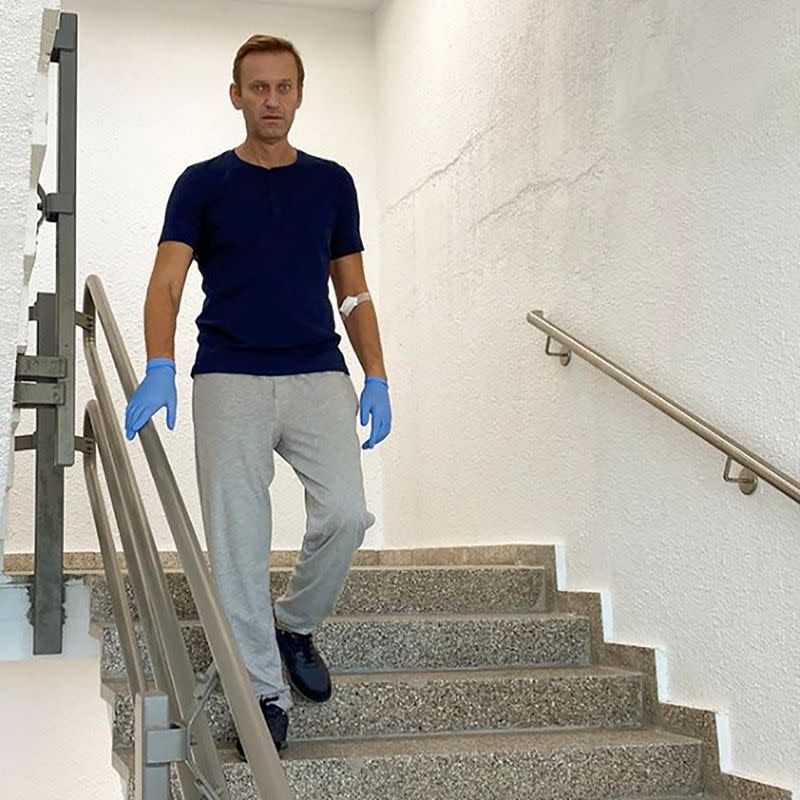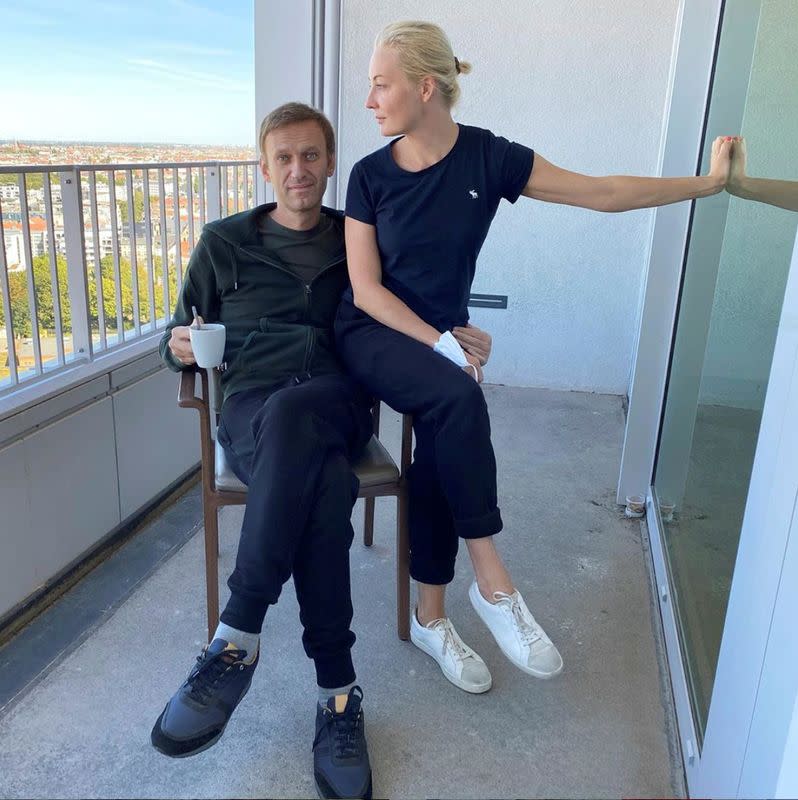Navalny tells Russia to hand over clothes he was wearing when he fell into coma
MOSCOW (Reuters) - Kremlin critic Alexei Navalny told Russia on Monday to hand over the clothes he was wearing when he fell into a coma last month and accused Moscow of withholding an important piece of evidence in his case.
The outspoken opponent of President Vladimir Putin said his clothes were taken away from him before he was flown to Germany for treatment from Siberia after he fell violently ill on a domestic flight.
Germany says tests in three countries have determined he was poisoned with a Novichok nerve agent and the West has demanded an explanation from Russia.
Moscow has said it is yet to see evidence of a crime and has declined to open an investigation. The Kremlin has denied any involvement.
"Before they allowed for me to be taken to Germany, they took off all my clothes and sent me completely naked," Navalny wrote on his website.
"Considering Novichok was found on my body, and that infection through contact is very likely, my clothes are a very important piece of evidence," he said.
"I demand that my clothes be carefully packed in a plastic bag and returned to me," he said.
Russia has said it needs to see more evidence before a formal criminal investigation is opened into the Navalny case and has asked Germany to hand over Navalny's medical data so it can be reviewed.
Instead, Russia has opened a pre-investigation probe into the case.
"The 30 days of 'pre-investigation probe' were used to hide this important evidence," Navalny said.
In a separate post on Instagram, Navalny posted a photograph of himself sitting on a balcony with his wife Yulia and holding a drink.
Ivan Zhdanov, a member of Navalny's team, said Russian transport police had summoned Navalny's spokeswoman for questioning as part of their pre-investigation probe as well as several other team members.
Zhdanov said they would not turn up, however, as a 30-day deadline for the police to decide one way or another to open a formal criminal case had now passed.
(Reporting by Tom Balmforth; additional reporting by Maria Kiselyova and Anton Zverev; Editing by Alison Williams)



